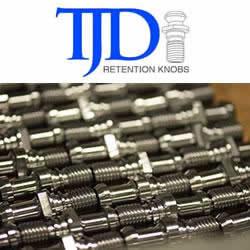NEW ASME STANDARD HELPS DEFINE SUPERIORITY OF LINEAR MOTION SYSTEMS FROM ALIO INDUSTRIES
The newly published standard developed by the AMSE (B5.64 standard “Methods for the Performance Evaluation of Single Axis Linear Positioning Systems) seems to finally accept that to accurately characterize the repeatability of such high-end motion systems, a systematic process must be used to characterize the point repeatability of a stage along the entire axis, something ALIO has been advocating for over a decade.
(23rd August 2023, Arvada, CO, USA) ALIO Industries — leading nanometer-level motion control system innovator — is well known for having developed mechanical bearing linear motion systems that can perform at levels that alternative "air" bearing stages struggle to attain. This is down to the company's focus on 6-D Nano Precision®.
The newly published standard developed by the AMSE (B5.64 standard "Methods for the Performance Evaluation of Single Axis Linear Positioning Systems) seems to finally accept that to accurately characterize the repeatability of such high-end motion systems, a systematic process must be used to characterize the point repeatability of a stage along the entire axis, something ALIO has been advocating for over a decade.
Precision linear motion systems provide highly accurate linear motion along x, y or z axes. They typically consist of a linear guide rail, a carriage or slider, and a drive system. The guide rail provides support and guidance for the carriage, while the drive system creates the force necessary to move the carriage along the rail.
By adding precision ingredients like high resolution encoders, state-of-the-art machining, nano-precise metrology and tuning procedures, these systems can be used in a variety of applications where high accuracy and smooth operation are required, such as in semiconductor manufacturing, precision machining, and optical inspection.
Bill Hennessey, President of ALIO Industries says, "Because of the exacting nature of the applications where linear motion systems are used, it is vital that they can achieve ultra-high levels of repeatable accuracy. This is why ALIO's linear motion products have been designed and manufactured to have no equal in terms of performance and reliability. The ‘6-D' in 6-D Nano Precision® refers to the 6 dimensions of motion; linear, straightness, flatness, pitch, yaw and roll. Nano Precision refers to documented proof of performance at or below the +/- 450 nm level. 6-D Nano Precision® means the documented proof of performance over all 6 degrees of freedom of a body in motion at the nanometer level of precision. We are delighted that the new ASME standard recognises the importance of this approach, and it helps differentiate our linear motion systems from those designed and built to the 2-D world of planar repeatability and accuracy."
All motion systems operate in 3-dimensional space and have errors in 6 degrees of freedom (6-DOF). However, motion systems are often only characterized by performance data of a single or subset of these 6-DOF. This practice leaves several error sources unaccounted for in performance data and specifications. ALIO contends that repeatability performance for metrology inspection and manufacturing systems must be analyzed and specified using a "point repeatability" method that accounts for 6D spatial errors in order to provide true representation of nanometer-precision performance. The ASME B5.64 standard for motion metrology shows that today standards organisations also see its importance.
Hennessey concludes, "The increasing precision of linear motion systems in particular and all motion systems in general requires a new language which transcends the use of terms like ‘precision' and ‘resolution' without any degree of qualification. ALIO's use of Point Precision® and 6-D Nano Precision, and now the newly published ASME standard, redefine the way precision motion systems are measured. All such initiatives or activities in this area are ultimately of enormous benefit for end-users who should be able to specify solutions that can truly achieve what they need in respect of precision and repeatability. ALIO does not build legacy products and is acutely aware of the 6-dimensional errors associated with simple linear motion. As such, we design and manufacture our linear motion stages with these issues in sharp focus with unique manufacturing techniques and leading-edge components tested to NIST traceable nano results."
All of ALIO's linear stage product families exhibit world class performance, component choice being dictated by the demands of exacting applications and cost sensitivity.
www.alioindustries.com
Featured Product

